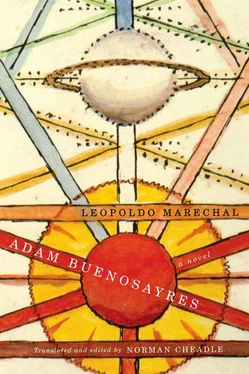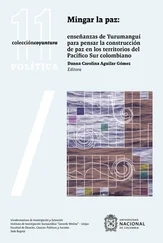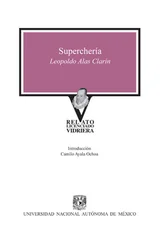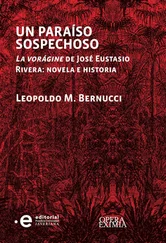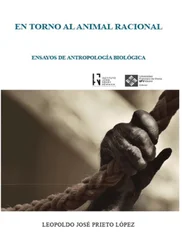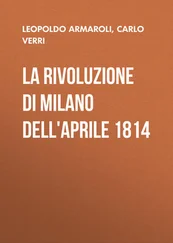”The case of Bellona’s death was pretty well settled, and had only to be judicially closed. I recall the boring preliminaries of the legal proceedings: the courtroom, with its dais for the judges and its big bronze crucifix on high; the hard wooden benches, the curtains of worn velvet and the carpets ruined by ten generations of litigants. And then all those official hands shuffling papers, the magistrates and witnesses filing by, the procession of familiar and unknown faces looking at me with compassion and curiosity. Okay! Fine! Nothing would matter after that. Bellona’s body was already just a fistful of disintegrating matter, far away, deep in the ground. Her lamentable story, too, would soon die, along with those papers which, being pawed over now, would eventually turn as yellow as dead leaves and fall prey to the gnawing teeth of big, furtive, silent rats… So much the better! Then oblivion would fall upon me, layer upon layer, like an interminable rain of ash. As I was ruminating on these thoughts, the inquest had begun. I vaguely heard mumbling voices reading from documents, and the monotonous testimony of witnesses. Then, as if in a dream, I heard myself recounting the same old story I’d repeated so many times before. Get it over with! Yes, quickly! And just as the pace of my declaration was accelerating, I sensed again for the third time the buzz of the green fly. When I batted it from before my eyes, I saw the three females sprawling like Bacchantes on the benches in the front row; I saw the three fateful women contemplating me and laughing more than ever, pointing grubby index fingers at me, gesturing and winking with terrible sarcasm. Some hidden spring snapped at last within me, perhaps some inner wire wound too tight: I got to my feet, and before the astonished gathering, I waved my hand at a pile of idiotic papers lying on the dais and sent them flying. Then, freed from the chains and walls in which I’d kept it prisoner, my soul cried out: “I killed her! I killed her!”
”Then I told all, before gloomy faces and the scratch of pens noting the horrors vomited up by my conscience. I told the story of the tragic night: how I’d slipped stealthily out of the Casino, sought and found Bellona on the rocky spur, how in our final quarrel I’d treacherously shoved her down onto the rocks below, how her last cry had been drowned out by the clamour of the waves; then my return to the Casino, under cover of the crowds streaming in and out; and finally the hours of darkness ticking by, and how I’d wished to stop them bearing me forward to the dawn.
The Man with Intellectual Eyes bowed his head and went silent.
— And afterward? Schultz asked him.
— The green fly has not come back to buzz before my eyes, answered the man.
— It hasn’t come back?
— It couldn’t come back any more. Nor have the three ghastly females returned. 154
— It is just.
— You said it, affirmed the man. Now there reigns within me a peace as of an evenly balanced scale. Yes, some invisible weigh-scale has come to rest, its two pans at the same level.
He turned his disquieting eyes toward me:
— Does the gentleman not know the story? he asked me, as if in a daze. Well then, let me tell you about Bellona!
I backed away in horror, for I realized the Man with Intellectual Eyes was condemned eternally to repeat the story of his love and his crime.
XII
The eighth circle of hell corresponded to Pride; naturally, for Schultz was aware that Pride, being both cause and sum of the other passions, holds first place in the hierarchy of evil. As we headed for this new stronghold of human folly, I was admittedly feeling an inexpressible lassitude, only slightly mitigated by the thought that the end was nigh. Half-asleep, eyelids drooping, feet dragging, I was vaguely aware of the astrologer’s censorious perorations against that greedy impulse, which can afflict even the angelic hosts.
As I drifted along in this state of twilight awareness, we came to a halt in front of the portal to the eighth spiral. Contrary to what one might logically expect in such an eminent circle of hell, my eyes beheld no solemn gate, no frowning tribunal, no pompous entrance; instead, there was a big, grey-velvet curtain falling to the ground in rigid perpendicular folds. The hellish vestibule was bathed in a silvery, moon-cold light. At first, the spiritless luminosity made me even sleepier, but gradually it possessed my eyes and forced them awake, cleared my mind of mist, and shook every vestige of lethargy from my will.
More lucid than I’d ever been, body alert and soul tense, I was just reflecting on the effects of this light, fancying it to be the glimmer of intelligibility itself, when I saw something stir behind the curtain. From among its folds, a head protruded, then a pair of cautious arms, and finally the entire person emerged, clad in ostentatious garb full of numbers and allegories, in the manner of a magical robe. Great was my dismay when I recognized Samuel Tesler’s kimono, and greater still when I identified the philosopher of Monte Egmont Street himself in the man’s austere countenance. Samuel Tesler came toward us, head held high, hair a-glitter with golden bees, the dual horns of the initiate poking out from his locks.
— Thank God I’ve found you here! I cried jubilantly, stepping forward with my hand outstretched.
The philosopher’s hand stayed where it was:
— Sir, he told me with pompous dignity, such familiarity was acceptable in the physical world above. But here more formal protocols of address must be observed.
— Eye of Baal! I rejoined in a pained voice.
A pleased smile came over Samuel Tesler’s face:
— That’s better, even if that isn’t my real name, he said at last, recovering his ceremonious demeanour. I have climbed Mount Carmel and contemplated the truth facie a facie . My current address is number 50 Via Unitiva, Apartment 3. The light in this vestibule doesn’t do much for me; otherwise, you two would have noticed the mystical radiance surrounding my cranium, especially in the frontal and occipital zones. Nevertheless, I hope your noses haven’t missed the odour of myrrh emanating from my person.
He looked around him warily. Then he brought his enormous head close to our noses and said:
— Smell this perfume. It’ll knock your socks off!
We sniffed Samuel’s head. It really did smell, I had to admit, but not of sacred lotus or mystic rose. It reeked of a lotion they used to sell on Triunvirato Street, fancifully labelled Nuit d’amour .
— What do you think? the philosopher asked us, raising his hornèd forehead again.
Noticing we weren’t as entranced as he must have expected, he smiled, half scornful, half indulgent:
— I see the olfactory test hasn’t worked for you. What a pair of mulattos! We’ll try the visual test. You ought to know that through intensive practice of the most gruelling austerities I’ve inwardly achieved the reintegration of the Primitive Androgyne. Having restored the harmonious balance between the male and female principles of the manifest universe, I’ve abolished within myself all contradictions and have come to a comfortably paradisiac situation. My true name is Adameva.
He took another wary look around. Then, with a modesty verging on the sublime, he opened the front of his kimono to show us his naked body. I can still hardly believe what I saw: Samuel Tesler’s frame exhibited the double nature of a hermaphrodite. His right, masculine, half comprised a hirsute semi-thorax, half a paunch, one coarse thigh, and a single bandy leg on which a man’s garter secured a cheap red-and-blue-striped sock. His left, feminine, half boasted one Venusian breast of rosy nipple, one ivory flank, half a silken-fleeced pelvis, and one sleek thigh covered all the way up with a transparent stocking held in place by a sea-green garter with little rococo roses. If the philosopher was intending to astonish us, he succeeded with flying colours. Before our crazed gaze, he closed his kimono back up; savouring his triumph, he looked at us with severity:
Читать дальше
